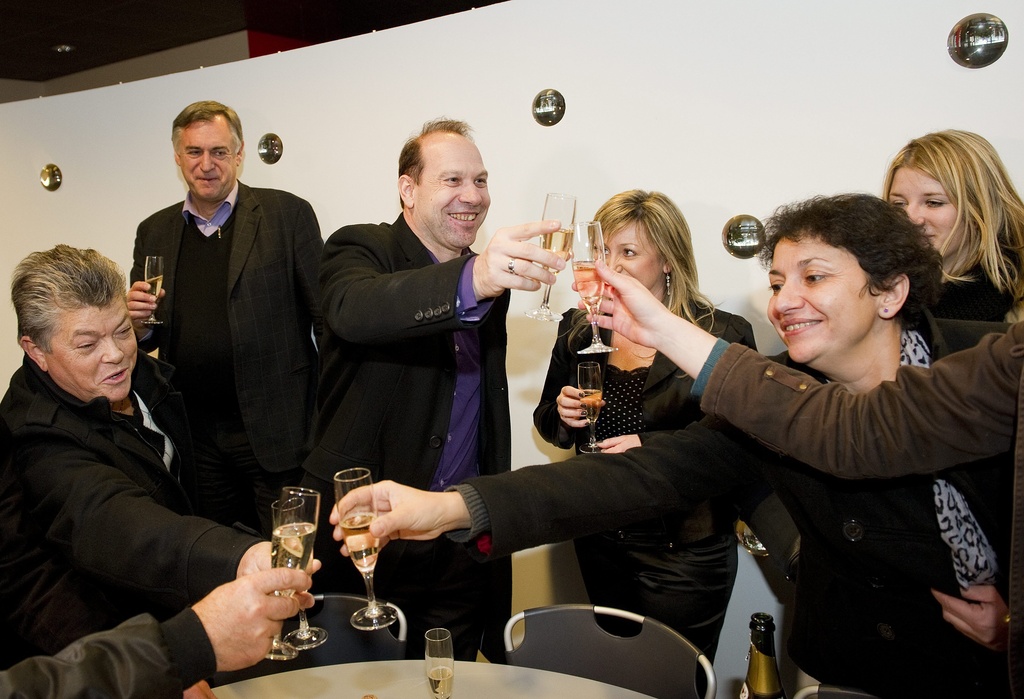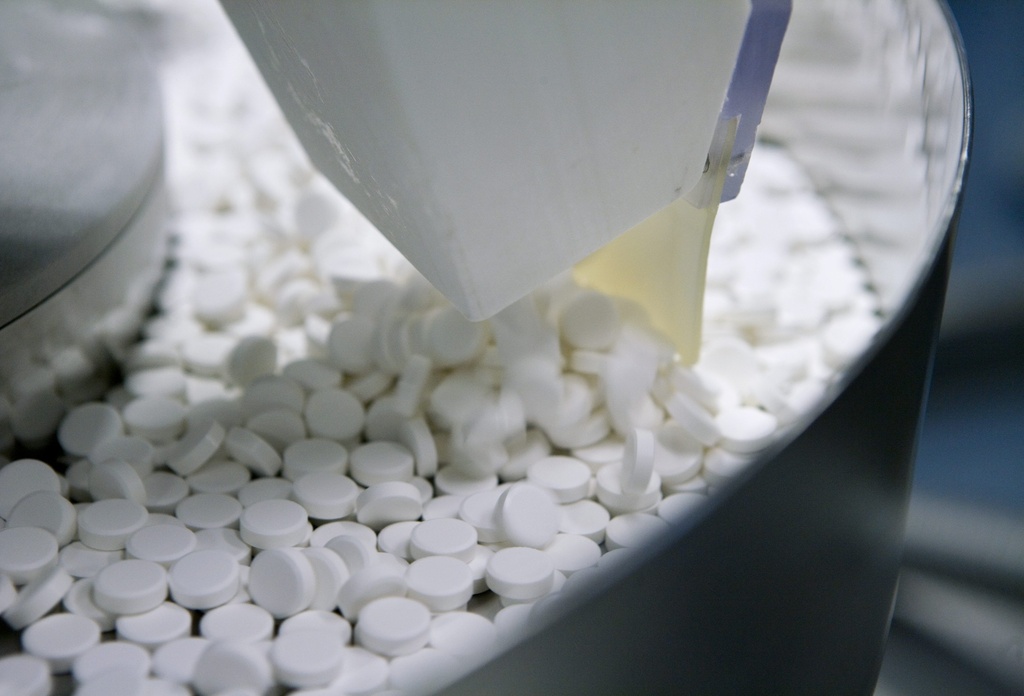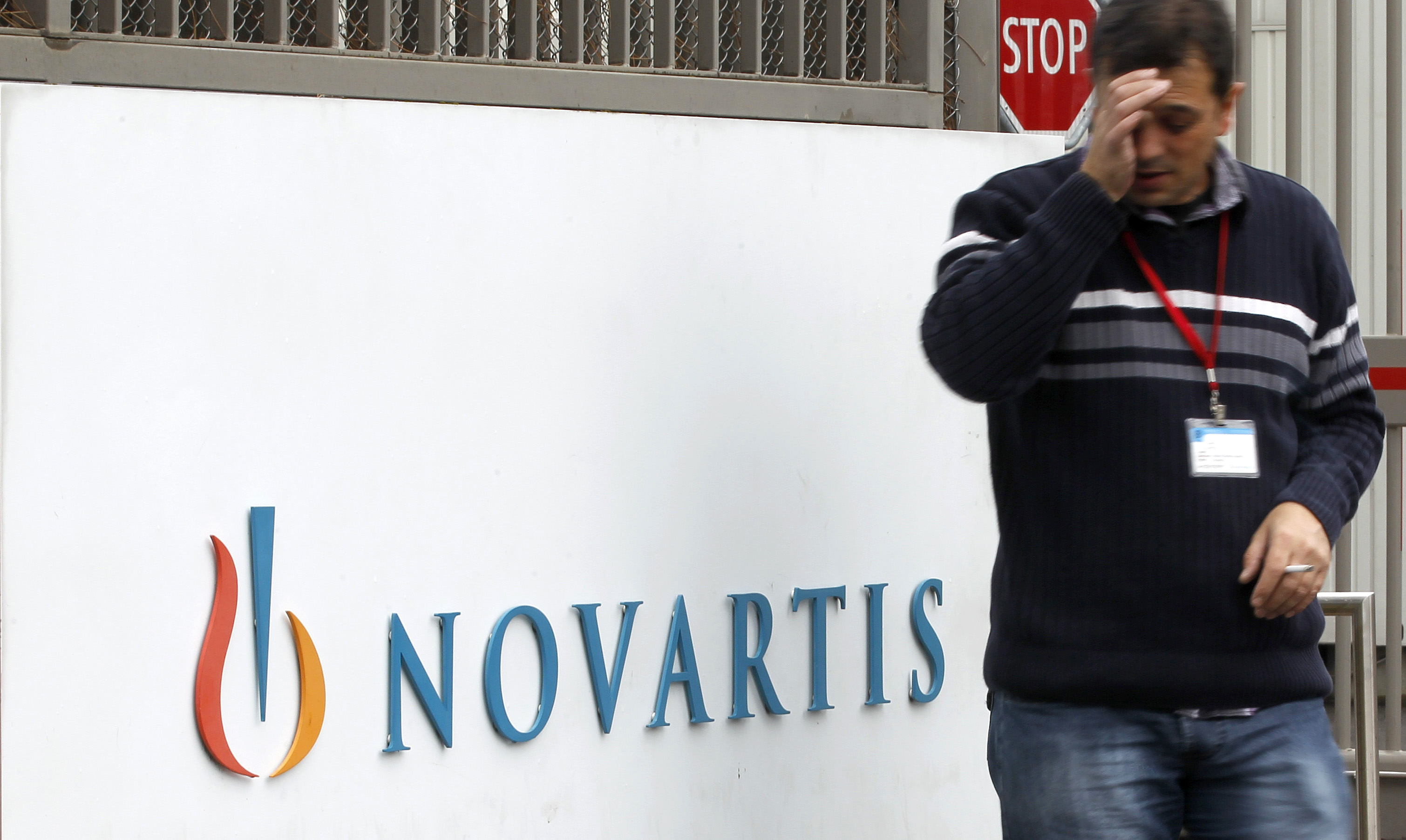Novartis U-turn is a “win-win solution”

The decision by Novartis to scale down Basel job cuts and reverse its October decision to close a Swiss factory has been hailed as a triumph for local resistance.
Described at the time by the pharmaceutical giant as a pre-emptive move, the announcement of 1,080 Swiss job cuts, alongside news of multi-billion profit figures, caused consternation in Switzerland.
“We’re facing an increasingly difficult environment which is likely to get even tougher over the next five years,” Novartis CEO Joe Jimenez said in October, commenting on the job cuts. “We can’t absorb these price cuts without taking action.”
But that was then. This week, almost three months after the bombshell announcement, news emerged of a compromise.
All the parties involved at the Nyon plant – Novartis, the unions and local government – worked hard at the negotiations and consultation process. This weekend a celebration party is taking place in Nyon.
Thanks to concessions by the workers and sweeteners from the local government in the French-speaking town, the plant will now be kept open and all 330 jobs there saved.
Pascal Brenneisen, new country president of Novartis Switzerland, was the key figure on Novartis’ side. Originally from Basel, he worked at the Nyon plant earlier in his career.
“From the very beginning of the consultation process our CEO had publicly stated that the company would take the process seriously and listen to any idea that would improve the financial viability of the site,” Brenneisen told swissinfo.ch.
Concessions
He described the negotiation process as smooth and commended the other stakeholders for being prepared to make concessions.
“With the productivity improvements at the site, some fixed cost reductions, employee concessions, as well as the benefits the government gave us, it all added up to a package which was a win-win for everyone,” Brenneisen said.
Because the plant has been saved and will be redeveloped, the local cantonal authorities will give Novartis the same favourable tax treatment as a new project. In addition to that, the local government agreed to rezone from commercial to residential some land held by Novartis at the site, thereby increasing its value.
“The decision to rezone to allow more housing to be built fits into our planning policy for the town,” Philippe Leuba, head of the Vaud cantonal finance department told swissinfo.ch.
Novartis also stood to gain from the resolution of the issue, as the Tribune de Genève newspaper commented in its Wednesday editorial.
“By persisting [with the job cuts], Novartis was exposing itself to a rapid deterioration of its image, while coming from a sensitive industry.”
“Because a tacit pact unites Switzerland and its pharma industry: ‘We’ll leave you alone if you stay here and keep investing’.”
Image aware
A widely-read Swiss-German daily, the Tages-Anzeiger, found it “amazing” that Novartis went back on its original decision and said this “partly restored its reputation”.
“The Anglo-Saxon culture of the group leadership, with American Jimenez at the top, obviously realised that it cannot disregard its image in Switzerland. The 13,500 employees here can hope that the American influence will not only be held back short term.”
Brenneisen dismissed this analysis, echoed in several newspapers, pointing out that there is no Swiss or American way of running a company like Novartis.
“Personally I believe that our Swiss home and our Swiss history is an important factor of our reputation as well part of our values. But of course today we are also a global company with a global mission and we aim to pursue our global growth.”
Around 160 kilometres away from Nyon, Novartis had been intending to cut some 760 jobs at its chemical factory in Basel.
Union satisfaction
On Tuesday Brenneisen said the number of losses would be “considerably reduced”. It now plans to redeploy a third of the workforce elsewhere and will study union proposals for restructuring at the plant.
While the fight goes on at Basel, the unions are particularly pleased that their battle to save the Nyon plant was rewarded.
Yves Defferrard of Unia told swissinfo.ch he was sure from the beginning that the inter-professional trade union’s proposals were credible and viable. “That is why we mobilised the workers, we were convinced that Novartis would lose money if they closed the site.”
Veteran of many other “consultation processes” that ended up in jobs being saved, Defferrard said, unlike the Novartis case, the work mostly takes place away from the media spotlight. The key is not to take company decisions as being written in stone, he said.
“If the workers had not decided to mandate their union on the first day to intervene and work together with them to do something to save their jobs, we would not be here celebrating this victory today.”
At a media conference on Tuesday Novartis said there would no job cuts at the Nyon plant, which makes non-prescription medicines. Around 320 jobs (out of 330) had been expected to go with the plant closure, as announced in October.
Instead the group plans to invest in modernising the plant in the coming years. The cantonal authorities have agreed to temporary tax breaks for the group. All personnel, including the directors, will forego some of their salary increases and working hours will be reduced.
Public pressure had been mounting over the planned closure, with around 1,000 people taking part in a demonstration in Nyon in November, and unions and local politicians coming out against the plans.
Novartis had also been intending to cut around 760 jobs at its chemical factory in Basel, but now says that the number of losses will be “considerably reduced”. It plans to redeploy a third of the workforce elsewhere.
Novartis employs around 121,000 people worldwide, including 12,500 in Switzerland.
In October it announced plans to cut 2,000 jobs over three years, half of which were to be carried out in Switzerland. Some of the work was also to be outsourced to workers in China and India. Last week it said another 2,000 posts would be lost in the United States.

In compliance with the JTI standards
More: SWI swissinfo.ch certified by the Journalism Trust Initiative






You can find an overview of ongoing debates with our journalists here. Please join us!
If you want to start a conversation about a topic raised in this article or want to report factual errors, email us at english@swissinfo.ch.